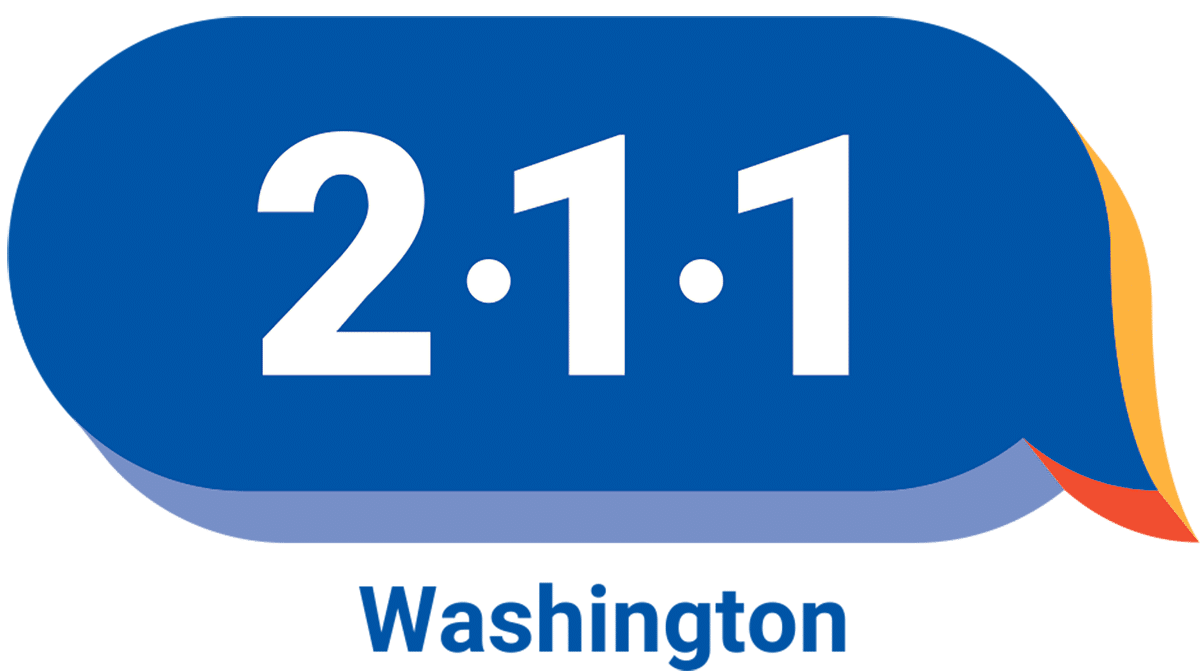WA211 reserves the right to determine inclusion/exclusion into its database of social service agencies maintained by regional call centers while recognizing that regional service needs and gaps vary.
The Washington 211 database predominantly contains nonprofit agencies that provide direct services to Washington residents. Exceptions may be made for emergency services, crisis intervention, information and referral and other emergent areas of critical need.
This policy does not prohibit the inclusion of any programs that focus services based on age, gender, health, disability, or other characteristics designed to meet the special needs of specific populations if they are open to all people in those specific populations.
Inclusion in the database does not represent or imply an endorsement of an organization’s services, and exclusion from the database does not reflect on any organization’s value or contribution to the community.
INCLUSION
- Non-profit: Includes agencies registered as 501(c)(3) as well as agencies with a more informal status that are run predominantly by volunteers, such as support groups or self-help groups.
- Government: Government agencies can be local, county, state, federal or partnerships among these. The work of many governmental agencies is mandated and directed by law. Examples include housing authorities and military services.
- Faith-based: Services are offered by a church or other similar institution or if they are funded by primarily religious sources. Also applies if faith is an underlying reason for providing services - even if the organization is a registered nonprofit. Exclude if an organization requires participation in religious activities, membership in a religious group, or profession of faith to receive services. Exceptions may be made in areas of acute need, such as food or shelter. Also exclude services that are primarily religious activities.
- For-profit: Must offer a commonly requested, low-cost service that is not offered by nonprofits in their area. Exclude agencies that claim to offer free services but exist to turn the client into a money-making opportunity. Also exclude if it meets all other requirements, but a specialized clearinghouse exists and is eligible to be listed in the database. The database is not intended to provide free marketing to businesses.
- Education: Agencies that provide educational services as their core program. Includes preschools, after-school programs if educational, school districts and post-secondary education options. For-profit education services fall under the for-profit agency type and inclusion/exclusion rules.
- Cooperative: Any association of members of a similar profession or common need that work together. It may purchase and market the products of its members or procure supplies to sell to the members. Eligibility criteria and fees must be clearly stated and otherwise open to the public.
EXCLUSION
- Agencies that have been in operation for fewer than six months unless they serve a critical need.
- Agencies that deny service on the basis of color, race, sexual orientation, gender, religious belief, national origin, or ancestry.
- Agencies that do not provide direct services to the pubic (coalitions, programs where the inquirer already must be a client of the same agency or another agency).
- Agencies that violate federal, state, or local laws or regulations.
- Agencies or organizations that misrepresent themselves in any way.
- Services that are rarely or never requested.
- Agencies who are unresponsive to update requests and whose information cannot be made current by
other means. - Agencies who have had serious complaints lodged against them.
COMPLAINTS
WA211 views complaints as valuable feedback that can enhance the quality of our database and services. Complaints and appeals about exclusion/inclusion will be acknowledged and addressed. Written procedures are available to complainants upon request.
